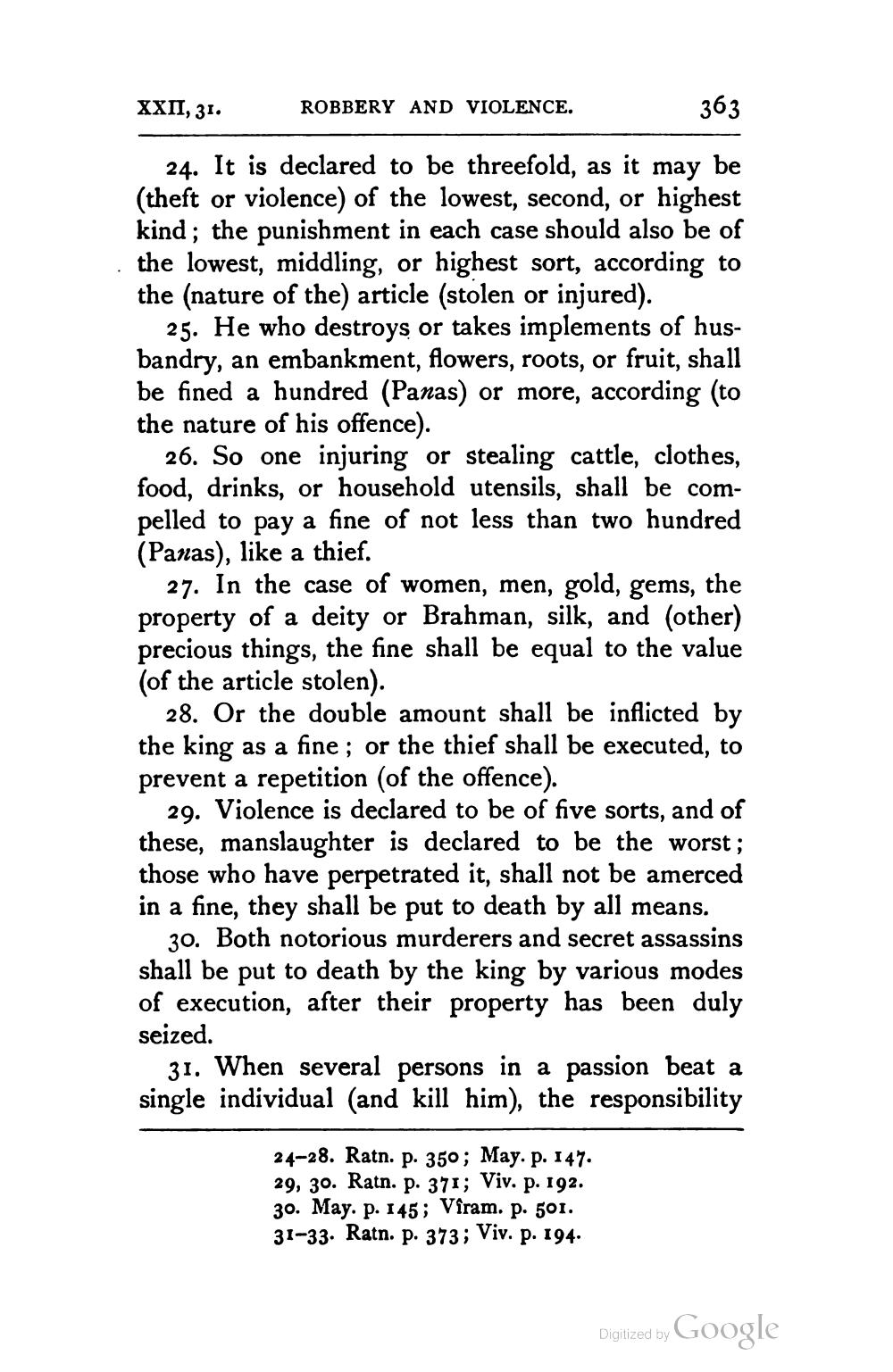________________
XXII, 31.
ROBBERY AND VIOLENCE.
363
24. It is declared to be threefold, as it may be (theft or violence) of the lowest, second, or highest kind; the punishment in each case should also be of the lowest, middling, or highest sort, according to the nature of the article (stolen or injured).
25. He who destroys or takes implements of husbandry, an embankment, flowers, roots, or fruit, shall be fined a hundred (Panas) or more, according (to the nature of his offence).
26. So one injuring or stealing cattle, clothes, food, drinks, or household utensils, shall be compelled to pay a fine of not less than two hundred (Panas), like a thief.
27. In the case of women, men, gold, gems, the property of a deity or Brahman, silk, and (other) precious things, the fine shall be equal to the value (of the article stolen).
28. Or the double amount shall be inflicted by the king as a fine; or the thief shall be executed, to prevent a repetition (of the offence).
29. Violence is declared to be of five sorts, and of these, manslaughter is declared to be the worst; those who have perpetrated it, shall not be amerced in a fine, they shall be put to death by all means.
30. Both notorious murderers and secret assassins shall be put to death by the king by various modes of execution, after their property has been duly seized.
31. When several persons in a passion beat a single individual (and kill him), the responsibility
24-28. Ratn. p. 350 ; May. p. 147. 29, 30. Ratn. p. 371; Viv. p. 192. 30. May. p. 145; Vfram. p. 501. 31-33. Ratn. p. 373; Viv. p. 194.
Digitized by Google




